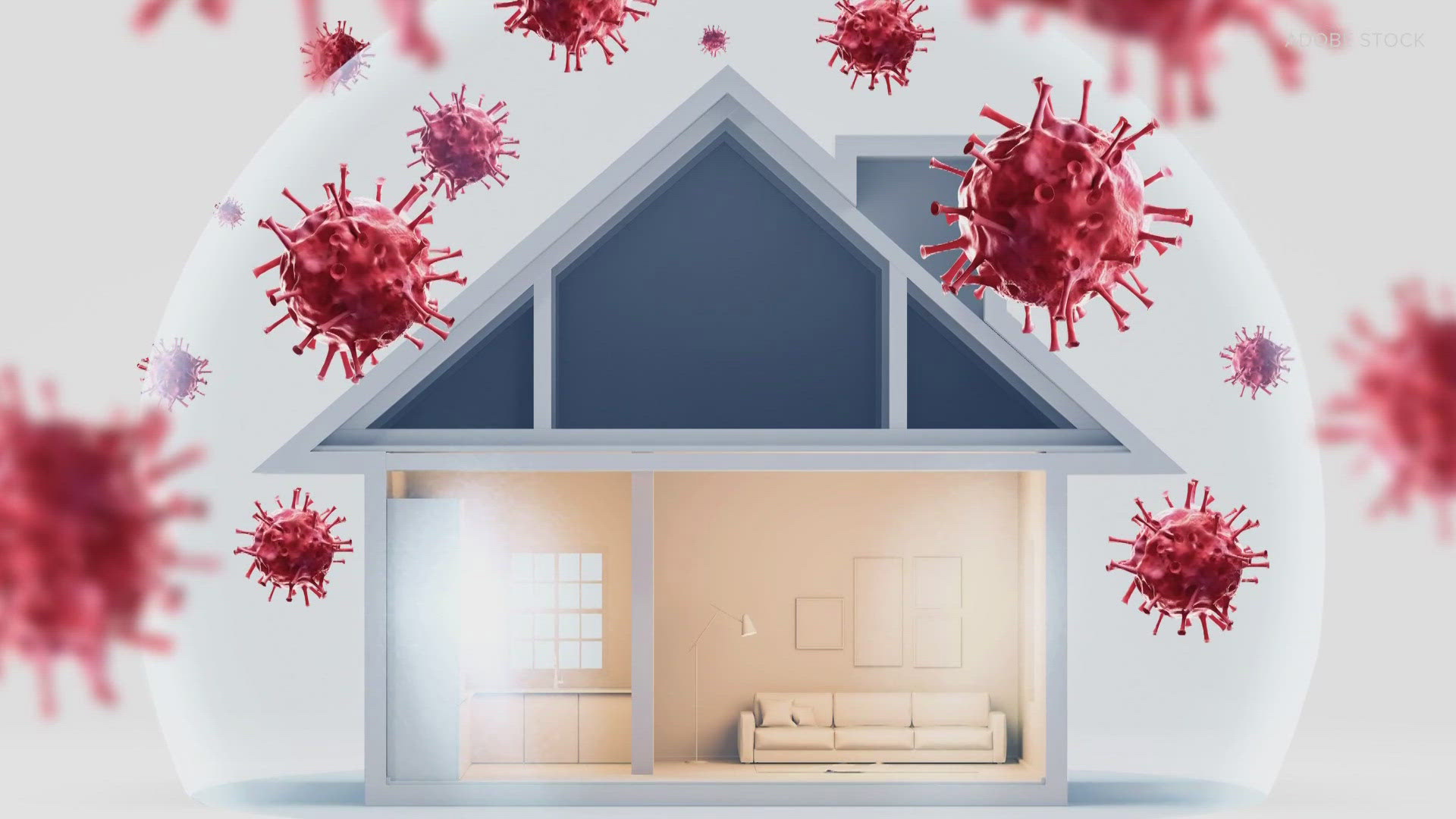SEATTLE — While the COVID-19 pandemic is in the rearview mirror for a lot of us, local researchers are still looking toward preventing transmission by understanding it better.
It includes how easily a respiratory infection spreads among people living in your house. For some, it's not rare to have one person in a household catch COVID-19 while others living under the same roof don't catch it at all.
Doctors at UW Medicine and Seattle Children's Hospital want to understand why.
"We are seeing lots of COVID right now," said Dr. Helen Chu, an infectious diseases physician and a professor of epidemiology at UW Medicine.
Chu, along with a team at Seattle Children's, is recruiting families to study the spread of COVID-19 and respiratory syncytial virus, or RSV, within households.
The project is timely, as COVID cases have risen in the U.S. in recent months.
Data from the Centers for Disease Control and Prevention saw COVID test positivity rise by a little more than 7 percent in Washington state in early June.
So if you happen to catch COVID or RSV over the next few months, Dr. Chu wants to hear from you.
"The goal is to understand how viruses are spreading in families," Chu said.
Chu said each individual taking part in the study will be paid up to $225 to participate.
But what she really hopes will motivate people to take part in the research is to understand how their significant others, kids, or roommates manage to catch COVID or RSV from them, not, while living under the same roof.
"Is it the amount of virus? Is it the age of the person? Is it the symptoms that they have?" Chu said.
To participate, at least one person in the household needs to have a positive test for RSV or COVID-19 in the five days before enrollment. For a group to qualify, three-quarters of the group in a household must join the study.
It entails ten days of at-home nasal swabs, an optional blood draw, and regular recording of symptoms, followed by surveys.
"So it could be that what we'll see is that actually there's not that much transmission of the virus in the household; not as much as we saw before. Or, we could see there is still transmission, but it's not as many cases. Or, we see that having a more recent vaccine protects you from transmitting it to others in your family. So those are the questions we would answer," Chu said.
RSV is also part of the study because, like COVID-19, vaccines and antibody treatments have recently become available.
Chu wants to know how that's influencing spread.
"We're really trying to understand, what is happening as people's immunity evolves over the last several years?" Chu said.
The research team is looking for 200 Seattle-area households to participate in the study. For more information, households can contact rightstudy@uw.edu. The study is expected to span several months into December.
Why did I catch COVID, but my housemates did not? HealthLink: New study wants to understand why
Researchers from UW Medicine are recruiting 200 Seattle-area households for a COVID and RSV transmission study

